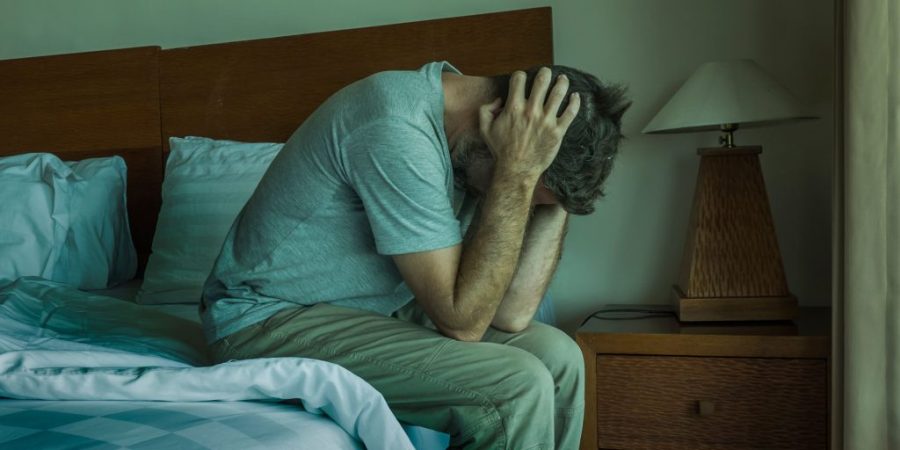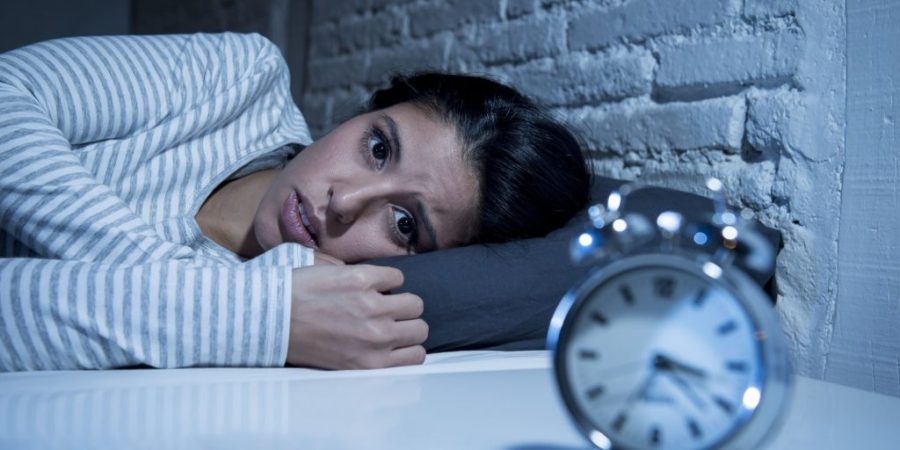
From Springbrook Hospital –
It’s normal to feel overwhelmed or sad from time to time. However, feelings of sadness or stress that interfere with your daily life can be a sign of something serious. In this case, you may be struggling with depression or anxiety, two of the most common mental health issues in America. But how can you tell the difference between depression and anxiety?
Although many symptoms of these disorders overlap, mental health professionals use the Diagnostic and Statistical Manual of Mental Disorders to help patients receive a diagnosis and the right treatment. And while we do not recommend self-diagnosing, using similar information can help you decide when it’s time to seek help. Below you’ll learn about the key differences between depression and anxiety to help you find the treatment you need to improve your mental health.
Table of Contents
The Difference Between Depression and Anxiety

To start, major depressive disorder or depression is classified as a mood disorder. This means your general emotional state or mood can be altered, interfering with your ability to function. Whereas anxiety is an umbrella term for different anxiety disorders, all of which cause worry and fear that interfere with daily life. Although there is more than a single difference between depression and anxiety, many of the differences stem from the way these two disorders are experienced.
For instance, depression is characterized by overwhelming feelings of sadness and hopelessness that can persist for two weeks or longer. People with depression often see themselves as a burden to those around them, so much so that they consider their life to have no value. This makes it difficult to see a reason to improve their overall wellness. Other common depression symptoms include a lack of energy, an inability to concentrate, and memory problems.
On the other hand, anxiety is characterized by excessive worry, uncontrollable thoughts, and muscle tension. Symptoms can vary according to the type of anxiety an individual has, however many symptoms overlap. People with anxiety experience many physical symptoms caused by intense or prolonged stress. It’s not uncommon for those who experience panic attacks to mistake physical pain and tension in their body for symptoms of a heart attack.
With all this in mind, the mental and physical symptoms tend to be the biggest indicator of whether you’re struggling with depression or anxiety, or both. From here, you can find the right treatment methods according to your symptoms.
The Similarities Between Depression and Anxiety
Despite the key differences, there are as many similarities as differences between depression and anxiety. Recurring situations that cause you to feel overwhelmed and powerless can lead to both depression and anxiety symptoms. This can make it difficult to discern which mental health condition is causing the symptoms as well as putting individuals at a much higher risk of experiencing the other disorder.
Moreover, a major contributor to the shared similarities of these mental health issues common biological basis. The development of both disorders is linked to comparable genetics and brain processes. Specifically, both have been found to possess strong genetic links, and may be connected to childhood traumas. In this way, the causes of these issues are often similar or, in cases where both conditions exist at the same time, precisely the same.
Can You Have Depression and Anxiety at the Same Time?
Depression and anxiety can occur sequentially or together as comorbidities. What this means is that someone can experience symptoms of depression and anxiety at the same time or one at a time. For example, it’s not uncommon for someone to feel hopeless after experiencing a panic attack. Especially if they frequently occur with symptoms associated with panic attacks such as a racing heart and difficulty breathing.
In these situations, it can be difficult to tell the difference between depression and anxiety because they heavily influence one another. Recurring events that trigger the symptoms of depression and anxiety can leave individuals feeling fearful or defeated. However, seeking professional medical advice can help determine if you’re experiencing one or both disorders. Understanding the differences is an important step in finding the right treatment options to improve your mental wellness.
The Difference Between Depression and Anxiety Treatments

Knowing the difference between depression and anxiety is a great start in getting the help you need. But knowing when or how to get help can be a challenging step in your recovery. Keep in mind that untreated mental health issues can have a detrimental impact on your overall wellness. Therefore, you should seek the support of mental health professionals as soon as new or worsening symptoms occur.
With that said, treatments for depression and treatments for anxiety are often similar. This makes it easy to learn more about potential treatment options if you’re still unsure which disorder you may have or if you have both. One of the most effective treatment options for depression and anxiety includes cognitive behavioral therapy (CBT). This form of talk therapy helps patients identify and alter thought and behavioral patterns contributing to their symptoms.
These forms of treatment are available through the intensive inpatient treatment program and the partial hospitalization program at Springbrook Behavioral Hospital. Moreover, it’s not uncommon for some adults to turn to drugs and alcohol to cope with unmanageable depression or anxiety symptoms. As a result, there is also a dual diagnosis treatment program to address and treat co-occurring mental health disorders.
Medication Types
In addition to various forms of talk therapy and support groups, adults looking to manage the symptoms of their clinic depression or anxiety disorder may have the option to use medication. While the types of medication used to treat depression and anxiety are similar, they affect neurotransmitters differently.
For instance, one of the most common medications effectively used to treat both disorders is selective serotonin reuptake inhibitors (SSRIs). These types of medications are often referred to as antidepressants. By increasing the amount of serotonin available in the brain, they can address both anxiety and depression symptoms.
Deciding if medication management is right for you depends on your disorder and the severity of your symptoms. Your care team will help you decide what’s best for your recovery.
Where to Find Treatment for Your Mental Health
Learning the difference between depression and anxiety is the first step in getting the help you need. Springbrook Behavioral Hospital provides evidence-based treatment modalities to adults in search of anxiety and depression treatment. Here, you will get the necessary support you need to overcome your mental health challenges.
If you want to learn more about how we can help you, call our admissions experts at 352-600-3288 or submit a confidential contact form online. We’re here to help you take the next step toward recovery.
The post The Difference Between Depression and Anxiety Explained appeared first on Springbrook Hospital.
Source
Original Author: Springbook Hospital

